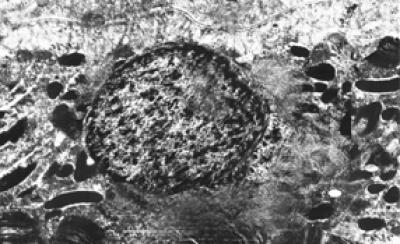Oxidative stress may cause retinal pigment epithelial (RPE) cell apoptosis. Nitric oxide and superoxide react to produce peroxynitrite, which, along with its derivatives, are strong oxidants. Cholecystokinin octapeptide-8 (CCK-8) can protect cholinergic neurons against basal forebrain lesion caused by brain injury. Research team at Hebei Province People's Hospital, China led by Dr. Yuan Liu treated human RPE cells with the oxidative stress inducer peroxynitrite, and evaluated the neuroprotective effects of CCK-8. Peroxynitrite triggered apoptosis in these cells, and increased the expression of Fas-associated death domain, Bax, caspa-se-8 and Bcl-2. These changes were suppressed by treatment with CCK-8. These results suggest that cholecystokinin octapeptide-8 can protect human retinal pigment epithelial cells against apoptosis induced by peroxynitrite. The relevant study has been published in the Neural Regeneration Research (Vol. 9, No. 14, 2014).

Compared with the peroxynitrite group, apoptotic features were less apparent after treatment with cholecystokinin octapeptide-8 (transmission electron microscopy).
(Photo Credit: Neural Regeneration Research)
Source: Neural Regeneration Research